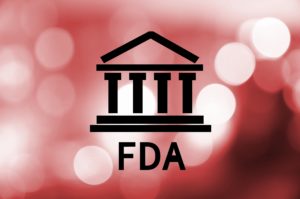 Last week, FDA published its draft guidance on civil money penalties relating to the ClinicalTrials.gov data bank to the federal register. The guidance addresses how the FDA Centers (CDER, CBER, and CDRH, for drug, biological, and device products, respectively) identify whether parties have failed to submit required clinical trial registrations, results, or certifications, or knowingly submitted false or misleading information. Furthermore, the guidance explains under what circumstances the Centers may seek civil monetary penalties, what procedures apply for seeking such penalties, and what amounts may be assessed for various violations.
Last week, FDA published its draft guidance on civil money penalties relating to the ClinicalTrials.gov data bank to the federal register. The guidance addresses how the FDA Centers (CDER, CBER, and CDRH, for drug, biological, and device products, respectively) identify whether parties have failed to submit required clinical trial registrations, results, or certifications, or knowingly submitted false or misleading information. Furthermore, the guidance explains under what circumstances the Centers may seek civil monetary penalties, what procedures apply for seeking such penalties, and what amounts may be assessed for various violations.
FDA noted that it will identify violations through its own collection of evidence during inspections and through complaints received by the agency. When a responsible party has potentially failed to comply with its disclosure obligations, FDA will send a Preliminary Notice of Noncompliance (Pre-Notice) Letter, and allow the responsible party 30 days to make any necessary corrections. If after the 30-day period ends the FDA determines that a responsible party has still failed to comply, FDA may issue a Notice of Noncompliance, assess civil monetary penalties, or seek an injunction and/or criminal prosecution. The statutory maximum for civil penalties is “not more than $10,000 for all violations adjudicated in a single proceeding,” plus “not more than $10,000 for each day that the violation continues” past the 30-day notification period.
FDA has stated that it will employ a risk-based approach to focus on parties who fail to submit information pertaining to higher risk clinical trials and clinical trials “of public health importance,” as well as on parties with a “pattern of previous noncompliance.” The factors considered in fixing the amount of a civil money penalty include “the nature, circumstances, extent, and gravity of the violation(s) and, with respect to the violator, ability to pay, effect on ability to continue to do business, any history of prior such violations, the degree of culpability, and such other matters as justice may require.”
The guidance states that while it is representative of the current thinking of FDA, it will not be binding on FDA or the public after it is finalized. Comments on the guidance are due by November 20, 2018.

